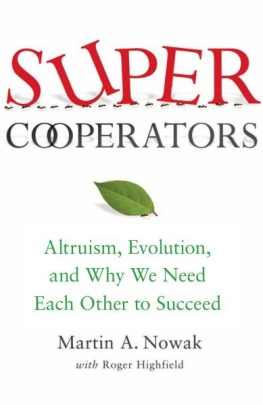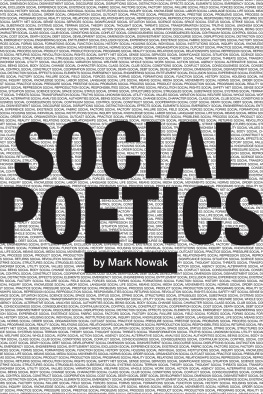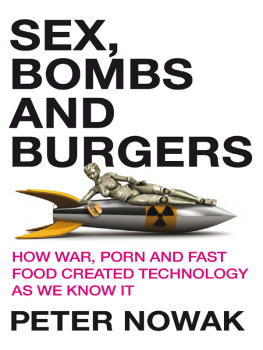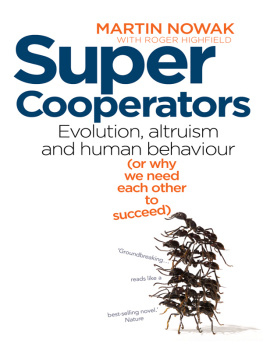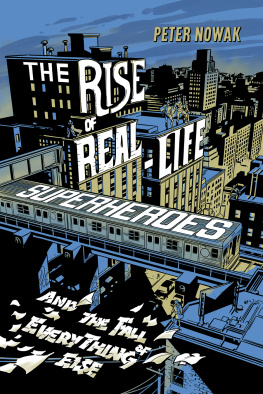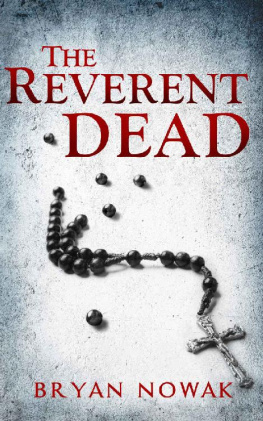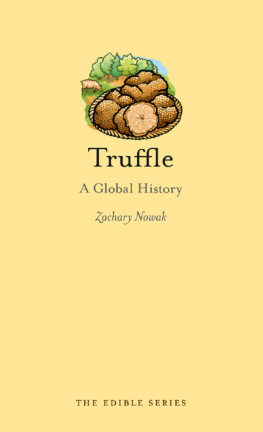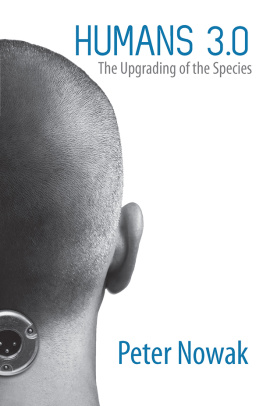Martin Nowak - Supercooperators
Here you can read online Martin Nowak - Supercooperators full text of the book (entire story) in english for free. Download pdf and epub, get meaning, cover and reviews about this ebook. year: 2011, publisher: Canongate Books Ltd, genre: Science. Description of the work, (preface) as well as reviews are available. Best literature library LitArk.com created for fans of good reading and offers a wide selection of genres:
Romance novel
Science fiction
Adventure
Detective
Science
History
Home and family
Prose
Art
Politics
Computer
Non-fiction
Religion
Business
Children
Humor
Choose a favorite category and find really read worthwhile books. Enjoy immersion in the world of imagination, feel the emotions of the characters or learn something new for yourself, make an fascinating discovery.
- Book:Supercooperators
- Author:
- Publisher:Canongate Books Ltd
- Genre:
- Year:2011
- Rating:5 / 5
- Favourites:Add to favourites
- Your mark:
- 100
- 1
- 2
- 3
- 4
- 5
Supercooperators: summary, description and annotation
We offer to read an annotation, description, summary or preface (depends on what the author of the book "Supercooperators" wrote himself). If you haven't found the necessary information about the book — write in the comments, we will try to find it.
Supercooperators — read online for free the complete book (whole text) full work
Below is the text of the book, divided by pages. System saving the place of the last page read, allows you to conveniently read the book "Supercooperators" online for free, without having to search again every time where you left off. Put a bookmark, and you can go to the page where you finished reading at any time.
Font size:
Interval:
Bookmark:


Also by Martin A. Nowak
Evolutionary Dynamics:
Exploring the Equations of Life (Winner of R. R. Hawkins Award)
WITH ROBERT MAY
Virus Dynamics:
Mathematical Principles of Immunology and Virology
Also by Roger Highfield
The Physics of Christmas:
From the Aerodynamics of Reindeer to the Thermodynamics of Turkey
The Science of Harry Potter:
How Magic Really Works
WITH PETER COVENEY
The Arrow of Time:
A Voyage Through Science to Solve Times Greatest Mystery (New York Times Notable Book, UK bestseller)
Frontiers of Complexity:
The Search for Order in a Chaotic World
WITH PAUL CARTER
The Private Lives of Albert Einstein
WITH SIR IAN WILMUT
After Dolly:
The Uses and Misuses of Human Cloning


FREE PRESS
A Division of Simon & Schuster, Inc.
1230 Avenue of the Americas
New York, NY 10020
www.SimonandSchuster.com
Copyright 2011 by Martin Nowak and Roger Highfield
All rights reserved, including the right to reproduce this book or portions thereof in any form whatsoever. For information address Free Press Subsidiary Rights Department, 1230 Avenue of the Americas, New York, NY 10020.
First Free Press hardcover edition March 2011
FREE PRESS and colophon are trademarks of Simon & Schuster, Inc.
The Simon & Schuster Speakers Bureau can bring authors to your live event. For more information or to book an event contact the Simon & Schuster Speakers Bureau at 1-866-248-3049 or visit our website at www.simonspeakers.com .
DESIGNED BY ERICH HOBBING
Manufactured in the United States of America
1 3 5 7 9 10 8 6 4 2
Library of Congress Cataloging-in-Publication Data
Nowak, M. A. (Martin A.)
SuperCooperators : altruism, evolution, and why we need each other to succeed / Martin A. Nowak, Roger Highfield.
p. cm.
Includes bibliographical references.
1. Game theory. 2. Evolution (Biology)Mathematical models.
3. Cooperative societies. I. Highfield, Roger. II. Title.
QA269.N687 2011
519.3dc22 2010035517
ISBN 978-1-4391-0018-9
ISBN 978-1-4391-1017-1 (ebook)
To Karl and Bob, relentless cooperators
The only thing that will redeem mankind is cooperation.
BERTRAND RUSSELL
The Struggle
From the war of nature, from famine and death, the most exalted object which we are capable of conceiving, namely, the production of the higher animals, directly follows.
Charles Darwin, On the Origin of Species
Biology has a dark side. Charles Darwin referred to this shadowy aspect of nature as the struggle for existence. He realized that competition is at the very heart of evolution. The fittest win this endless struggle for life most severe and all others perish. In consequence, every creature that crawls, swims, and flies today has ancestors that once successfully thrived and reproduced more often than their unfortunate competitors. As for the rest, they forfeited any chance to contribute to the next generation. They lost, and now theyre gone.
The struggle was born at least 4 billion years ago, with the first primitive cells. They were simple bacteria, each one little more than a tiny, organized collection of chemicals. If one of these chemical machines had an advantage over its peers, it would reproduce faster. Given better-than-average access to a limited food source, it would prosper and its rivals perish. This struggle continues, and across a spectrum of habitats. Today, Earth is the planet of the cell. Microorganisms now teem in almost every habitat, from poles to deserts to geysers, rocks, and the inky depths of the oceans. Even in our own bodies, bacterial cells outnumber our own. When adding up the total number of cells on Earth todayaround 10 to the power of 30, or 1 followed by 30 zeroesall you have to do is estimate the number of bacterial cells; the rest is pocket change.
The struggle can also be found in those organized collections of cells that we call animals. On the African savannah, a lion crouches in the long grass, muscles tensed and senses tightly focused on a nearby herd. Slowly and silently it stalks the antelope and then suddenly, in a burst of speed, sprints toward an animal, leaps, grabs its neck, and pierces the skin, blood vessels, and windpipe with its long, sharp teeth. It drags the prey to the ground and holds tight until the antelope breathes its last. When the lion finishes with its kill, a shroud of vultures wraps the bloody remains.
In The Descent of Man, Darwin remarked that modern man was born of the same struggle on the same continent. Africa was formerly inhabited by extinct apes closely allied to the gorilla and chimpanzee; and as these two species are now mans nearest allies, it is more probable that our early progenitors lived on the African continent than elsewhere. Our ancestors spread out to colonize the Earth during the last 60,000 years or so, outcompeting archaic species such as Homo erectus and the big-brained Neanderthals (though if you are European, Asian, or New Guinean, you may have a trace of Neanderthal blood racing through your veins). The struggle for existence continues apace, from competition between supermarkets to drive down prices to cutthroat rivalry between Wall Street firms.
In the game of life we are all driven by the struggle to succeed. We all want to be winners. There is the honest way to achieve this objective. Run faster than the pack. Jump higher. See farther. Think harder. Do better. But, as ever, there is the dark side, the calculating logic of self-interest that dictates that one should never help a competitor. In fact, why not go further and make life harder for your rivals? Why not cheat and deceive them too? Theres the baker who palms you off with a stale loaf, rather than the one fresh out of the oven. Theres the waiter who asks for a tip when the restaurant has already added a service charge. Theres the pharmacist who recommends a well-known brand, when you can get a generic version of the same drug much more cheaply. Nice guys finish last, after all.
Humans are the selfish apes. Were the creatures who shun the needs of others. Were egocentrics, mercenaries, and narcissists. We look after number one. We are motivated by self-interest alone, down to every last bone in our bodies. Even our genes are said to be selfish. Yet competition does not tell the whole story of biology. Something profound is missing.
Creatures of every persuasion and level of complexity cooperate to live. Some of the earliest bacteria formed strings, where certain cells in each living filament die to nourish their neighbors with nitrogen. Some bacteria hunt in groups, much as a pride of lions hunt together to corner an antelope; ants form societies of millions of individuals that can solve complex problems, from farming to architecture to navigation; bees tirelessly harvest pollen for the good of the hive; mole rats generously allow their peers to dine on their droppings, providing a delicious second chance to digest fibrous roots; and meerkats risk their lives to guard a communal nest.
Human society fizzes with cooperation. Even the simplest things that we do involve more cooperation than you might think. Consider, for example, stopping at a coffee shop one morning to have a cappuccino and croissant for breakfast. To enjoy that simple pleasure could draw on the labors of a small army of people from at least half a dozen countries.
Next pageFont size:
Interval:
Bookmark:
Similar books «Supercooperators»
Look at similar books to Supercooperators. We have selected literature similar in name and meaning in the hope of providing readers with more options to find new, interesting, not yet read works.
Discussion, reviews of the book Supercooperators and just readers' own opinions. Leave your comments, write what you think about the work, its meaning or the main characters. Specify what exactly you liked and what you didn't like, and why you think so.

